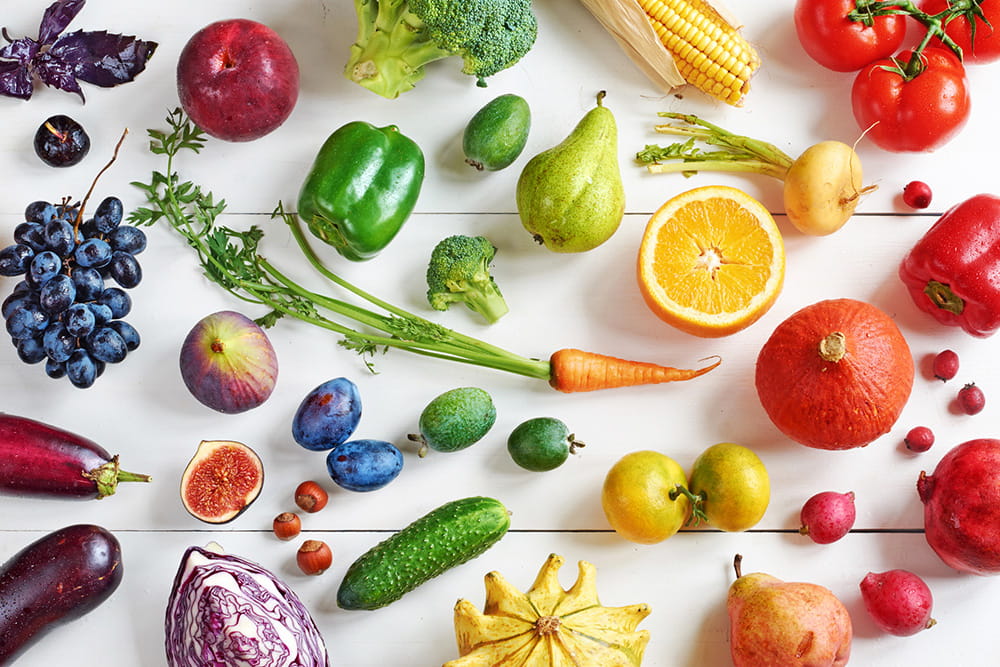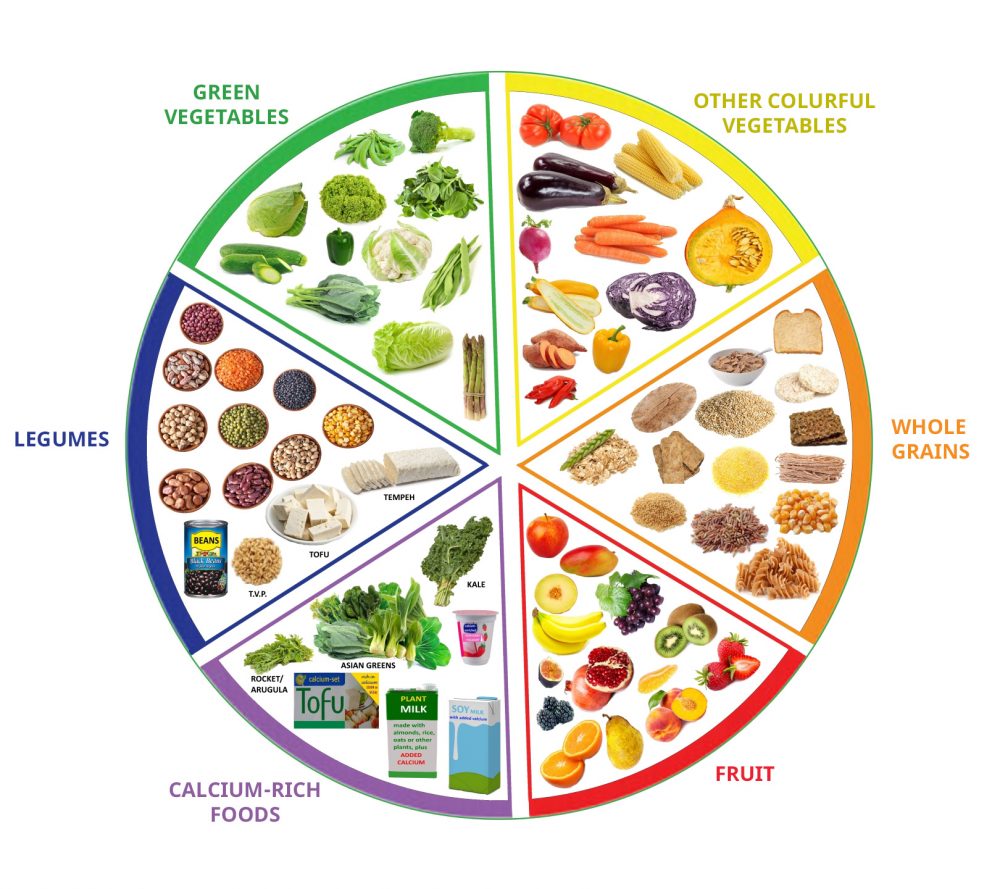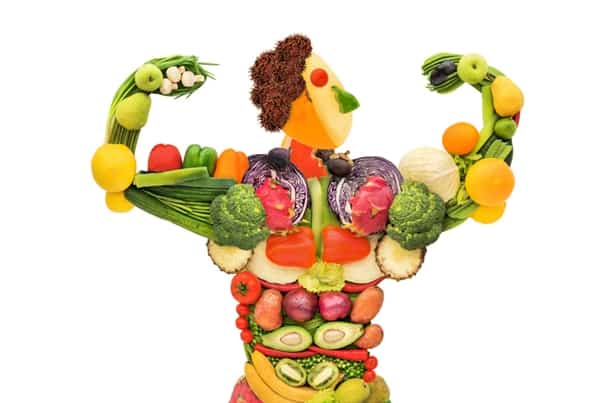I am a student of English Letters Department at Universitas Ma Chung (https://machung.ac.id) and this is my work

THE CORE DIFFERENCE
Vegan and vegetarian are two booming lifestyles in this era. Unfortunately, many people still do not understand very well about these two types of diets. When there are questions regarding these two diets emerge, the majority of people run into confusion distinguishing between vegans and vegetarians, even many of them presume the two diets are the same thing. Although it looks the same, in fact, these two diets have differences. Actually, understanding both of these diets is fairly easy. In general, the difference between vegans and vegetarians is vegans do not eat animal products, while vegetarians do not eat animals but still eat products derived from animals. However, Compared to vegetarian, a vegan diet is much more stringent. For further explanation regarding these two diets, I will explain it later in the next paragraphs. Regardless of their differences, both of these diets are a healthy lifestyle for adherents. Mostly, the reasons people choose between these two diets because of health, environment, religion, ethics, or care for animals. The reason why I chose this topic is I do really like discussing something related to health. Moreover, I come from a family adopted a vegetarian diet. In other words, I am one of many people who choose to become a vegetarian. In my family, some people adopt a vegan diet. People around me often presume vegans and vegetarians similar and I always try to clarify these misunderstandings conceptions. Some people around me find it difficult to distinguish between vegans and vegetarians because they do not follow that lifestyle. Although, Some people understand very well about these two diets, and some others understand the differences in general, but they do not know the details and even have less precise understanding. That is why these reasons motivate me to discuss this topic.
VEGETARIANISM
First of all, I will discuss vegetarianism. The vegetarian diet is reported to have existed since 700 BC. But the word vegetarian was only invented in 1839 and is used until now to describe plant-eating humans. We need to know, many famous figures also adopted the lifestyle of eating plants long before or after the term vegetarian was born, their names are certainly familiar to us, a few of them are Phytagoras (500-490 BC), Plato (428-348 BC), Confucius (551-479 BC), Saint Anthony of Egypt (He was a religious leader in the 3rd century and regarded as the originator of organized Christian monasticism), Leonardo da Vinci (1425-1519), Henry David Thoreau (1817- 1862), and Mahatma Gandhi (1869-1948).
According to Vegetarian Society articles, a vegetarian is someone who does not eat meat, poultry, fish, seafood, insects, gelatin or animal rennet, stock or fat from animals, or other products from slaughtering animals. A vegetarian diet contains various levels of fruit, vegetables, grain, pulses, nuts, and seeds. The entry of dairy products, honey, and eggs depends on the type of diet adopted.
There are seven types of vegetarians, four of which are the most common types of vegetarian diets. I will mention, explain, as well as tell the benefits of each type of diet.
1. Lacto Vegetarian
Vegetarians who do not eat red or white meat, fish, poultry, or eggs, but they do consume dairy products such as cow’s milk, yogurt, and cheese. Lacto vegetarians are noted to save many animals every year. Moreover, lacto vegetarians also get health benefits because of the meatless diet, such as low blood pressure and the risk of certain diseases. However, they still consume cholesterol from dairy products.
2. Ovo Vegetarian
Vegetarians who avoid red meat, white meat, fish, poultry, and dairy products, but consume egg products. Just like lacto vegetarians, ovo vegetarians get many benefits from a meat-free lifestyle but still consume cholesterol from eggs.
3. Lacto-ovo Vegetarian
This type is a combination of lacto and ovo vegetarian, also the most common vegetarian lifestyle. Lacto-ovo vegetarians do not consume meat, fish, poultry, but still consume dairy products and eggs. Lacto-ovo vegetarians still have better health than meat-eaters but have higher cholesterol levels than vegetarian lacto or ovo alone.
4. Vegan
Vegan is one of seven types of vegetarians. Vegans are vegetarians who avoid all kinds of animal and animal products. I will explain further in a special paragraph on veganism.
Three other types of vegetarians are pescatarian, pollotarian, and most recently, flexitarians. I will explain these three types separately from the previous four types because these three types of vegetarians have quite a big difference from the four other common vegetarian types.
1. Pescatarian
Pescatarians still eat certain meat, such as fish and seafood. Although a pescatarian is still far from a chronic health problem, consuming too much fish and seafood can make the body contaminated with excess pollutants and mercury. Pescatarian is considered successful in saving animals from factory farming.
2. Pollotarian or Pollo-vegetarian
This type is quite controversial. Pollotarian does not eat red meat and fish, but still consumes poultry meat. Many criticize that this lifestyle is no longer on the vegetarian path. Pollotarians have fewer heart problems than meat-eaters, just like pescatarians. However, speaking of saving animals, pollotarians arguably do not contribute to saving animals.
3. Flexitarian
This type is the latest vegetarian terminology. Flexitarians are people who generally consume vegetable products but sometimes consume meat products. Research shows that adopting a meat-free lifestyle at least one day a week can have significant health and environmental benefits and impacts.
Although sometimes considered vegetarians, pescatarians, pollotarians, and flexitarians still consume animals. That is why some people claimed that those types are not included in vegetarians. Therefore, they do not technically fall under the definition of vegetarianism.
VEGANISM
Now let us talk about veganism. As I said before, vegan is included in one type of vegetarian. The vegan diet can be seen as the most strict form of vegetarianism. Vegetarians and vegans differ in their beliefs about the use of animals by humans. This is why some vegetarians can consume animal-derived products, whereas vegans cannot.
Vegans do not consume all animal products. The vegan diet is very diverse and consists of all kinds of fruits, vegetables, nuts, grains, seeds, beans, and pulses. Veganism is more than a diet, it refers more to lifestyle. The definition of veganism according to The Vegan Society is “way of living which seeks to exclude – as far as is possible and practicable – all forms of exploitation of, and cruelty to, animals for food, clothing or any other purpose; and by extension, promotes the development and use of animal-free alternatives for the benefit of humans, animals, and the environment. In dietary terms, it denotes the practice of dispensing with all products derived wholly or partly from animals”. Vegans strongly avoid the exploitation of animals for any purpose, with compassion being the main reason many people choose this diet lifestyle. This is the reason why many vegans refuse to spend money on clothing, beauty products, or entertainment that involves the exploitation of animals. Compared to other types of vegetarians, research shows that vegans certainly save more animals, around 200 animals per year due to their lifestyle. Statistics also show that vegans have better health than people who consume animal products. Heart failure and cancer deaths are very rarely experienced by vegans. Besides, being vegan also has a positive impact on the environment, such as reduce pollution, saving water, and much more.
NUTRITION
Vegetarians and vegans generally consume almost the same level of nutrition. Research shows a vegetarian and vegan diet tends to be low in saturated fat and cholesterol. Both of these diets can be very healthy, and also contain a lot of nutrient-dense foods, but vegans and vegetarians need to pay attention to nutrition deficiencies. The following are some nutrients that should be considered according to British Nutrition Foundation.

1. Protein
Protein is needed for many important functions that make our body function properly. A common misconception is that those who don’t eat meat or fish will not consume enough protein. However, vegans and vegetarians usually get enough protein from their food.
Protein contains a substance called amino acids. Our bodies can make some of these amino acids, but others, known as ‘essential’ amino acids, are needed from food.
Consuming various sources of vegetable protein will help ensure that you get enough of all essential amino acids.
Good sources of protein:
– Eggs (vegetarians, not vegans).
– Pulses (such as chickpeas, kidney beans, soya beans, and lentils).
– Tofu or bean curd.
– Nuts (choose plain, unsalted, varieties).
2. Iron
Iron is very important for transporting oxygen throughout the body, brain function, and immune system. Premenopausal women (those who have monthly cycles) are more at risk of iron deficiency.
The iron found in plant foods (called non-hemic iron) is less easily absorbed in the body than iron from animal sources (known as iron hem). Vegetarians may have lower iron stores so it is important to include good sources of iron in food.
Good sources of iron:
– Pulses (lentils, beans, and peas).
– Green leafy vegetables (such as watercress and spinach).
– Seeded or brown bread.
– Dried fruits (such as apricots and figs).
– Nuts and seeds (such as cashews, almonds, walnuts, sesame seeds, pumpkin seeds, and sunflower seeds)
Vitamin C helps your body absorb iron. For example, if you make vegetarian bean curry, add some paprika.
3. Calcium
Calcium is important for healthy bones and teeth and muscle and nerve function. For vegetarians, dairy foods, such as milk, cheese, and yogurt, are good sources of calcium.
For vegans, They have to make sure to include foods and other calcium-containing drinks that include:
– Bread (bread made from flour that does not contain whole wheat, such as white bread).
– Some green leafy vegetables (like water spinach and watercress).
– Alternative calcium-fortified milk (such as soy and alternative drinks without soy, oats, rice, or beans).
4. Vitamin D
Vitamin D is needed for the absorption of calcium and phosphorus from food to maintain bone health. We get most of our vitamin D through the action of sunlight on our skin during the summer months but fish and eggs are oily, cereals are enriched and spread also contain vitamin D.
But besides sunlight, good vegan sources of vitamin D:
– Vitamin D fortified fat spreads, breakfast cereals, and unsweetened soya drinks.
– Vitamin D supplements (Vitamin D2 and D3 are supplements that are consumed for vegans).
5. Vitamin B12
Vitamin B12 is needed to prevent anemia, and because it is only found naturally in animal products, vegans, in particular, might want to consider vitamin supplements or foods that are enriched with nutrients.
Good vegan sources of vitamin B12:
– Vitamin B12 fortified yeast extract.
– Vitamin B12 fortified breakfast cereals (with added vitamin B12).
– Vitamin B12 fortified dairy-free alternatives (such as soya, oat, and nut dairy-free alternative drinks or vegan spreads).
However, unplanned diets can cause low nutritional intake and it is not good for our body. That is why well planned vegetarian and vegan diets can be nutritious and healthy.
WHICH IS HEALTHIER?

After knowing the differences between the two diets clearly, often people ask which one is healthier? Both diets provide similar health benefits and generally encourage people to eat more antioxidant-rich and nutrient-dense foods. Vegans and vegetarians have advantages and disadvantages. For instance, avoiding milk and eggs can help vegans maintain their cholesterol levels but on the other hand, lacto vegetarians get calcium, phosphorus, and vitamin D from dairy products. Therefore, it is difficult to say which diet is healthier.
According to a report from the Academy of Nutrition and Dietetics and some scientific reviews, vegetarian and vegan diets can be considered suitable for all stages of life, as long as the diet is well planned. Both vegetarians and vegans may have lower nutritional intake. However, research shows that vegetarians tend to consume slightly more calcium and vitamin B12 than vegans. Besides, vegetarians and vegans should consider the daily nutritional intake they consume, measure their blood nutrient levels, and take appropriate supplements.
Several studies directly compare the two diets and report that rather than vegetarians, vegans may have a somewhat lower risk of developing type 2 diabetes, heart disease, and various other types of cancer. In general, a vegan diet may be better than a vegetarian diet because it reduces the risk of certain diseases. However, if not properly planned, a vegan diet is also more likely to cause malnutrition. But we need to know that following and doing a plant-based diet does not guarantee good health. It is still possible for vegans and vegetarians to lead unhealthy lifestyles.
CONCLUSION
In conclusion, vegetarians and vegans avoid consuming animal products for the same reason. As explained earlier, there are several types of vegetarians, vegans are one of them, and are the strictest of the vegetarian spectrum.
In terms of ethics, vegetarians oppose killing animals for food but consider it appropriate to consume animal by-products such as dairy products and eggs, as long as the animals are kept inadequate conditions. On the other hand, vegans believe that animals have the right to be free from human use, whether for food, clothing, science, or entertainment. The desire to avoid all forms of animal exploitation is why vegans choose not to consume dairy products, and eggs anymore.
Both of these diets can be considered safe for all stages of life but both also have advantages and disadvantages. A vegan diet might provide additional health benefits if people do it correctly. However, it is important for vegetarians and vegans to plan their diets well to avoid long-term health problems. Because if both of these diets are done in the wrong way it will also make our body unhealthy.
References:
Definition of veganism. (n.d.). Retrieved April 6, 2020, from The Vegan Society website: https://www.vegansociety.com/go-vegan/definition-veganism
Eske, J. (n.d.). What is the difference between veganism and vegetarianism? Medical News Today. Retrieved from https://www.medicalnewstoday.com/articles/325478#summary
Lap Tai Le, J. S. (2014). Beyond Meatless, the Health Effects of Vegan Diets: Findings from the Adventist Cohorts. Retrieved April 20, 2020, from NCBI website: https://www.ncbi.nlm.nih.gov/pmc/articles/PMC4073139/
Lifestyle, T. W. M. H.-N. (2018). What’s the Difference Between Vegan, Vegetarian, Plant-Based and Nutritarian? Retrieved April 6, 2020, from Youtube website: https://www.youtube.com/watch?v=vCud3GgKw0k&t=172s
Petre, A. (2016). Vegan vs Vegetarian – What’s The Difference? Retrieved April 6, 2020, from healthline website: https://www.healthline.com/nutrition/vegan-vs-vegetarian#section3
Sheridan, A. (2018). Veganism: why it’s not just a diet, more a way of life. Retrieved April 6, 2020, from Style website: https://www.scmp.com/magazines/style/travel-food/article/2163252/veganism-why-its-not-just-diet-more-way-life
Vegan, B. S. (2014). Vegan Vs Vegetarian ft. Gary Yourofsky. Retrieved April 6, 2020, from Youtube website: https://www.youtube.com/watch?v=aYXYfrDbLbk&t=60s
What is a Vegetarian? (n.d.). Retrieved April 6, 2020, from Vegetarian Society website: https://www.vegsoc.org/info-hub/definition/
Clarissa Gisela Frederick – 211810008
Report Writing: Final Draft
Lecturer: FX. Dono Sunardi, M.A.